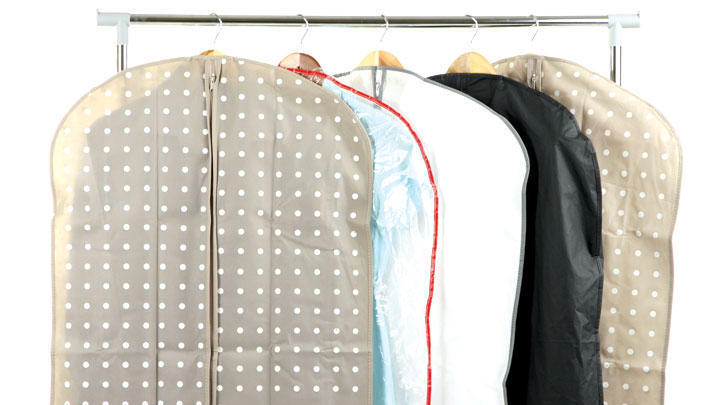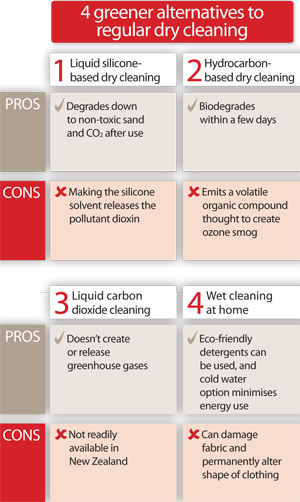What's greener?
My dilemma: Dry cleaning
Dr Michelle Dickinson

[This story first appeared in the Dec14-Jan15 issue of Green Ideas magazine.]
Question
“I’ve heard that dry cleaning uses some nasty chemicals. Is this true, and if so what can I do about it?”
Grace M, Papakura
Answer
“The easiest solution for the environment is not to buy dry-clean-only clothing. However if your favourite outfit has those dreaded words on the label, there are some greener alternatives available.
The biggest culprit in dry cleaning is the chemical perchloroethylene (perc for short), which is known to cause several health issues including kidney and liver damage as well as being a possible carcinogen. Environmentally, perc is toxic to soil-based creatures and kills life forms that live in water, so an accidental spill leaking into the groundwater system could devastate the local environment.
Although most dry cleaners in New Zealand still use perc, a simple web search will list perc-free companies in your region who usually state their non-toxic chemical use, waste recycling and energy reduction programmes on their websites.
However there are still some environmental downsides to the alternatives. Silicone-based dry-cleaning methods are commonly sold as a ‘green’ solution because their product degrades to non-toxic sand, water and carbon dioxide. However the manufacturing process for the siloxane solvent requires chlorine which is known to release dioxin, a toxic environmental pollutant.
Hydrocarbon cleaning alternatives are less toxic than perc and sometimes misleadingly labelled as organic, but being manufactured from petroleum they are a non-renewable source which produce greenhouse gases.
An exciting new method called liquid carbon dioxide cleaning subjects clothes to liquid CO2 in a pressure chamber, removing the dirt then recovering the CO2 for reuse, but sadly is not yet available here.
Also, it’s not just the cleaning solution that’s important: check if your dry cleaner uses biodegradable or reusable suit bags to wrap your clean items in and that they recycle or reuse their hangers.
Finally, the ‘dry clean only’ label is usually the manufacturer’s way of protecting themselves if your garment is damaged by conventional washing. Many items can still be gently hand-washed in cold water with a biodegradable laundry liquid for the greenest alternative to them all.
Top tips
- Try gentle hand washing if your garment isn’t lined or structured.
- Ask your dry cleaner if they use ‘perc-free’ products.
- Support dry cleaners that recycle hangers, and use biodegradable or reusable suit bags.

Have an eco dilemma that needs expert advice? Email [email protected] with 'My dilemma' in the subject line, or write to Green Ideas, PO Box 47177, Ponsonby, Auckland 1144.
